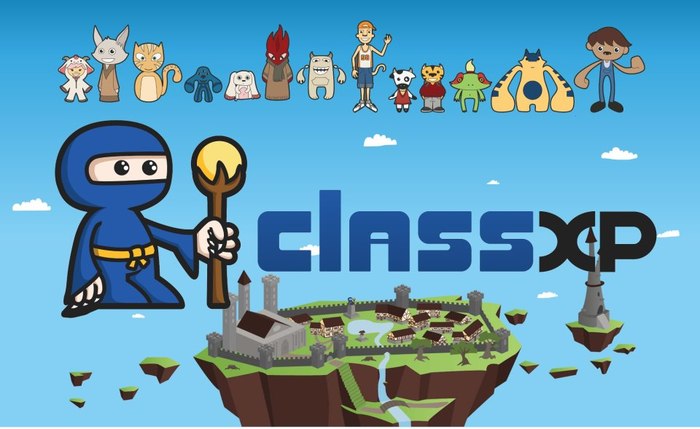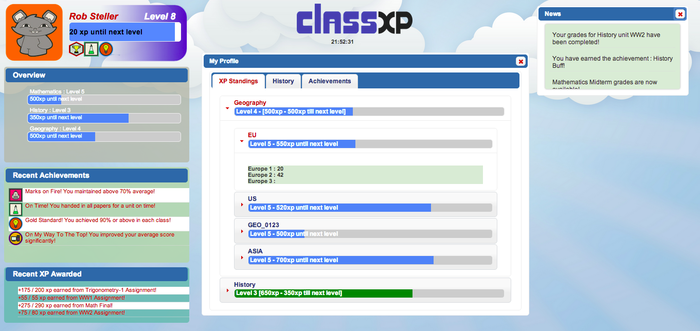
The K-12 education in the United States has some serious issues. Seems like enough key people are talking about it, but not enough is happening to reverse the damage. The conversations for lay people, like me, have been one, big, head-pounding exercise of wading through a cauldron of educated pundits, cocky policy makers and gloating politickers. Talk has merit, but I like to focus on solutions. As fortune would have it, a source for solutions presented himself and his name is Rob Steller. What Steller is doing is well, quite stellar.
Steller is a guy motivated to make a mark in the way K-12 students are intrinsically motivated to learn. As a child, Steller was not particularly considered a "good" student, but he did his work despite not having a real engagement with how he was learning the material. His mom a teacher and his family highly invested in education as a value so Steller would be expected to have all the motivation to succeed.
Succeed he did: Steller went on to eventually earn an undergraduate and two master degrees. Steller recognizes that motivation can make all the difference in the lives of struggling students as it did for him. Get students engaged early to want to gain more education and it will follow them throughout life. Steller's solution is to help the next generations of scholars re-discover passion and connection to their work with an education gaming system he is building called Class XP.

Class XP cover (photo credit: Class XP)
Class XP is being designed as software that evolves the elements that entice people to move through levels of video games as a way to motivate students to get the most out of their curriculum. The system will also provide teachers with a central way to view and measure substantive progress.
During his college years, Steller tutored third and fourth graders in the north end of Hartford, CT. Hartford, like many places in the country, is a city struggling to close educational gaps and establish excellence that puts students on par with national standards.
The 2012 Achieve Hartford report acknowledges that while student standardized test scores have improved for five consecutive years, a 22-point gap remains for the school district to close for students to measure at the proficient level. The estimated time to achieve proficient levels at the current pace gains have happened is 12 years.
In Steller's Hartford classroom, students were like drones, armed with rote memorization and easily distracted. They became engaged when Steller decided to shake things up and create fictional characters to help students visualize and connect the content to underlying concepts.
Students received points for correct responses and were encouraged to improve their personal best scores instead of compete against each other. The characters created excitement and engagement for the class, whom had to work individually and together to create solutions that helped all of their personal progress.
Eventually, the free-standing game characters would influence Steller to put together a team of forward-thinking teachers, gamers and developers to make software that they hope will entice both students and teachers to work more effectively together.
"After realizing that [a system using gaming techniques to improve student intrinsic learning] was not something that existed but was very well received, I decided to create it myself,"recalls Steller.
Steller is designing Class XP to take on the criticisms of what the implications that gamifying education can have; unhealthy competition between students that accelerates empty learning and unrealistic expectations that curriculum should be entertaining, like a game.
What does empty learning look like? To put things into perspective, take an instance of students learning the name of the states in the country and their proximity to each other. In today's education system, the push would be for students to be able to regurgitate this information on a standardized test to get a good grade. The good grade ideally indicates a level of understanding. Chances are, the same students that can recite the states that make up our union would be unable to understand why we have a state structure.
The difference of students that can recite states and students that understand the nation-state structure is the difference between disenfranchised and competent citizens of a nation. We all need to thrive or our union implodes under the weight of ignorance.
The Class XP system will not be a video game with characters, but students can choose avatars. The system contains game elements aimed to enhance individual understanding of themed concepts found within course curriculum topics. Plainly, if we recall the previous example of students learning states, with Class XP, students will be able to be evaluated on how well they know the names of states and why they exist.

Student Dashboard with Class Units and Levels of Achievement (photo credit Class XP)
The infrastructure of Class XP will be reminiscent of a video game with features that include a dashboard, leader boards and extra goodies to be revealed upon the launch of the product. Students would have the ability to log in, gauge progress and advance their concept scores for additional points at their own pace even after reaching the minimum passing level.
Teachers would have a separate log in to input which concepts they would like students to grasp and class test grades. Grading software that teachers already use would be imported into Class XP with the click of a button. The system would then match the imported data to the pre-assigned concepts to show which areas are strong and challenging for each student.
